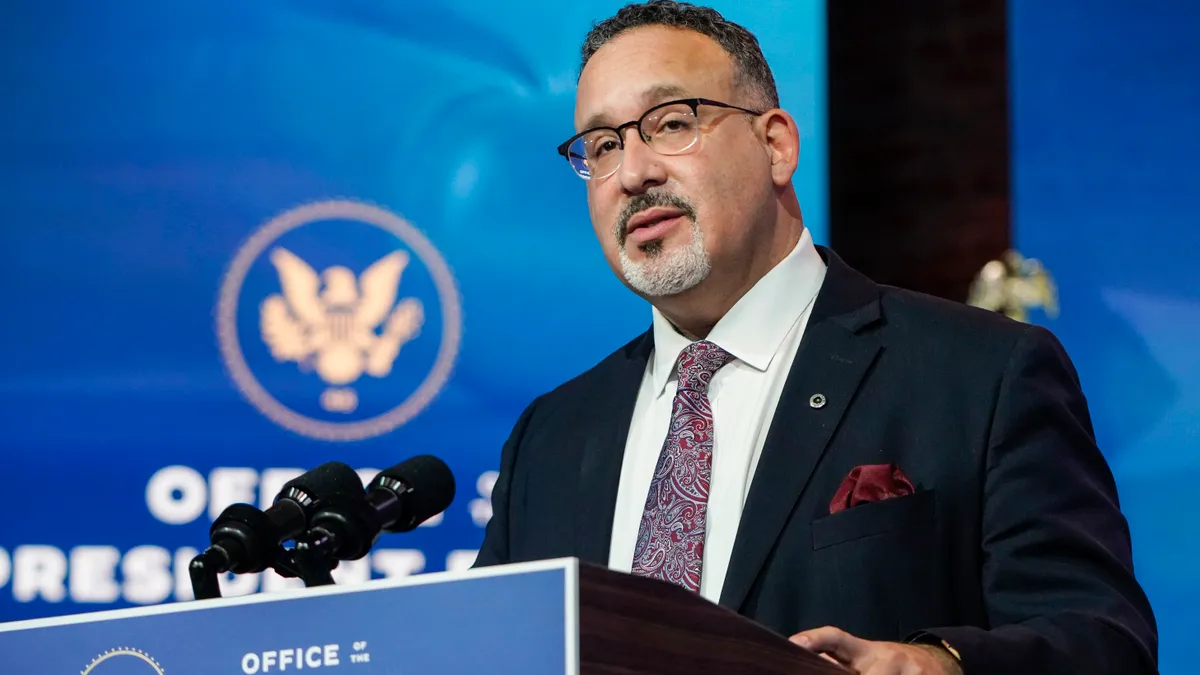Dive Brief:
- The U.S. Department of Education last week urged state education leaders to improve student attendance, stressing in a Dear Colleague letter the importance of starting now to address chronic absenteeism in the 2024-25 school year.
- While districts and states have ramped up their work — like increasing home visits and establishing data dashboards on attendance — U.S. Secretary of Education Miguel Cardona wrote "there is still more work to do."
- One way for school districts and states to bolster attendance, Cardona said, is to identify schools for support and improvement using accountability systems. More than three-quarters of states already use a measure of chronic absenteeism to identify schools for support and improvement in their accountability systems, according to the department.
Dive Insight:
The letter comes after a Government Accountability Office report last month found that less than half of school support and improvement plans investigated by the office met federal requirements. Overall, the February report found that districts' support and improvement plans fell short in areas like needs assessments and identifying inequities.
Cardona's letter asked each state to commit to three key actions to help more students "attend and engage in school" daily, ensure more students attend regularly for the rest of this school year, and lay a foundation now for more progress in the 2024-25 school year.
The letter builds on past administration efforts to bring attention to chronic absenteeism and attendance issues, which increased in the wake of the pandemic. In January, the White House and Education Department called for "bold actions" to improve student achievement, including boosting student attendance.
In 2023, the White House had called for "all hands on deck" after the White House Council of Economic Advisers found chronic absenteeism during the pandemic serious enough to have substantially contributed to declining test scores.
Meanwhile, preliminary research released earlier this month found that high-impact tutoring could increase attendance. A study by the National Student Support Accelerator at Stanford University discovered that Washington, D.C., students receiving high-impact tutoring were less likely to be absent on days they had sessions.
"These results highlight the multifaceted benefits of high-impact tutoring and its potential to address the widespread problem of chronic absenteeism in our schools," said Susanna Loeb, founder and executive director of the Stanford center, in a statement.















